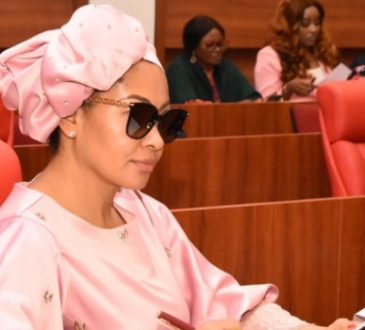
Mr. Kayode Okunoren is the current President, Nigerian Council of Registered Insurance Brokers (NCRIB), a body of about 450 insurance broking firms in the country. He has been the managing director of many insurance broking companies and a professional of over 40 years experience in insurance industry, Okunoren speaks with Abdul Olalekan on the impact of the current recession and fraudulent claims on the business of underwriting in the country, among other prevailing issues in insurance industry. Excerpts:
How will you rate the operating environment in the brokerage sub sector in 2016 and what are your expectations for the current year?
2016 was a trying year for everybody, including the insurance brokerage industry. Broking is a sub-sector of the insurance industry and obviously, the current recession is affecting a lot of brokers. Businesses are not renewing their insurance policies as they used to and those who renew are doing so on an existing basis most of the time. So, there was a drop in income for most brokers, even as the value of Naira has greatly depreciated. Obviously, this is also affecting the kind of insurances the general public buys and, by implication, it has reduced the activities of insurance broking, thus, affecting the overall turnover of various insurance broking outfits. So, it’s been a very tough operating environment in 2016 and we are hoping that we, as a country, will get out of the recession, according to a World Bank report, in the current year.
And with 2017 national budget making much provision for capital expenditure, we expect a better operating environment in the current year.
A lot of work is expected to be done in the area of Works and Housing this year and that should automatically translates to infrastructural development. However, we are hoping that this will enhance more businesses for insurance industry and the broking fraternity in particular.
If the budget is properly implemented with accountability and transparency, which is the trust of office of Mr. President, we believe there is a silver lining on the orison.
Last year, there was a drastic increase in the value of claims paid by insurance companies due to the economic recession that makes underwriters spend more to replace insured assets. Don’t you think there is the need to review rates of some of the policies?
It’s a problem caused by the current economic recession, coupled with the increase in fraudulent claims in the country. So, most of the amount paid on claims last year went into fraudulent claims, and that over-bloats the claims profile of insurance industry last year.
Aside this, even with genuine claims, the cost of replacing an insured asset has risen.
So, the replacement cost is not the same any more. It is easy for insurances that are designed on replacement values, but for those that are not designed on replacement values, they will be hoping that they will get replacement values and this put some pressure on both the brokers and the underwriters because most time, you are pursuing some unknowns.
On insurance police rates, one of the major issues battling insurance industry is unhealthy competition, cut-throat competition, whereby those who don’t have much can do anything and go to any length to get a bigger size of the market share. So, what do they do? The tendency is to undercut and insurance companies will accept because they too don’t want to reduce what they had. So, unhealthy competition between the operators in insurance market is a cause for concern and it unsettles the desired process mechanisms. However, we are hoping that once this recession is over, common sense will now prevail.
Although, we have been speaking against rate-cutting on several occasions, it is now time to act to rid the industry of this nemesis. I am hopeful that we can get there, especially, with the collaboration of both the brokers and underwriters. There is a joint committee of NCRIB and the Nigerian Insurers Association (NIA), to combat this, among other issues. We can’t be competing against ourselves because at the end of the day, we are not contributing enough to the Gross Domestic Product (GDP) as a result of this. You can only contribute effectively when the premium you write and market penetration increase. There has been series of deliberation on this issue of rate-cutting, but now, we must act as one to grow insurance sector of the financial industry.
There is already a plan to open up the insurance distribution channels. Do you think this is the right step in the right direction, especially when the agency and broking networks have not been fully utilised?
It is easy to say that the brokers and agency networks are not fully utilised. Of course, if there are incentives for the brokers to do their jobs properly, it would be applauding. I have nothing against regulation because we are operating in a regulated environment and so, we must be regulated.
As brokers, we have been telling our members to set aside individuals in their various organisations that can carry out effectively, the functions of addressing what the regulator requires, in terms of returns, and so on. All these take a lot of time, especially, for the small brokers, but then, we are also trying to find a way of achieving the set objectives through shared services and this can be worked out. When all these are in place, it is then that the brokers can concentrate on running around for business. That is how penetration occurs.
However, I have nothing against additional channels of distribution but it has to be thought through. To be fair to the National Insurance Commission (NAICOM), the guideline is not yet out, so, I can’t say much on this. But once the guideline is out, and we are not comfortable with what is there, we will engage the commission and give advice from our own viewpoint on what is needed to be done. There are many issues in the industry begging for attention, aside opening of distribution channels, but I want to believe that will be factored into the guideline, and if not, we will engage in our usual manner. We have committees in place that always work to ensure that things are done properly.
Revenue generation has been seriously difficult for professional bodies as some members don’t pay their dues. What measures are you putting in place to ensure that more members pay dues?
The important thing we are doing and we will continue to do is to show that we are adding values to the services that we provide for our members because when you see the values the council is adding that the tendency is for you to now say, they are protecting my interest, I also have to do my own obligation by paying the dues.
We also organise trainings, at an affordable cost, for the staff of our members’ broking firms. This is part of the value addition that the council is and will continue provide for members and once we continue to do that, I believe the members will pay because they would have seen the good things we are doing.
In terms of insurance advocacy, sensitisation and awareness, what is NCRIB doing in this regard?
We have a project that is starting this year. We call it ‘corporate visibility.’ We are going out to ensure that people are aware of, not only the roles of brokers, but insurance and the roles that brokers play in that value chain. That is the only way people can get to know what insurance is and how they can best benefit from it. That project is gradually being unfolded. We have newspaper adverts, radio jingles, radio interviews and newspaper interviews. These, and more are steps needed to create insurance awareness among Nigerians.
On payment of insurance on FG assets, especially, group life, has government paid for 2016? And what is your advice to FG to fast track the payment of 2017 insurance budget?
The issue seems to have been resolved because appointments have been made and I believe it wouldn’t have concluded that arrangement if the area of premium is not sorted out.
So, I want to believe that the payment would have been made, if not already made. As you know, premium is made directly to the insurers. So, until we engage the insurers that various brokers have been attached to, we may not know.
But by and large, I believe this has been resolved with the letters of appointment gone out. The next thing is for payments to be made. We will know this in the next few days or weeks.
There are reported cases of unregistered brokers underwriting government accounts. What is the council doing to arrest this scenario?
The problem is visibility. As you have known, NCRIB is registered by the Act of the National Assembly. It has the force of law and one of the conditions that are pronounced in the Act is that all brokers must be registered by NCRIB before they can be licensed. We have continually engaged the commission on this because it’s the law we are talking about. We must make sure that we are backed by the law. Until the law is repealed, it is still the law and there is no issue of repealing the one that is pertaining to NCRIB because it’s an umbrella body.
NCRIB is not writing any business, it’s just an umbrella body for all brokers that are operating in Nigeria. The law says all brokers should and must be registered before licenses are issued to them and it even helps because we are able to reach out to our members and then, with the various events that we undertake, we are able to continually tell them what they should be doing and what they should not do. Being in a regulated environment will mean satisfying the regulatory requirements of NAICOM and we provide brokers guidance on this.
We are sensitising our members to ensure that they apply for relicensing from NAICOM two months before the expiration of their certificate. That gives you enough space and it gives NAICOM enough time to be able to process adequately. The era of applying a day before it expired, is exposing the affected brokers because you will be operating illegally from the time your operating license expires, until you eventually get your license. We have drummed that into the ears of our members that they should apply ahead of time so that they don’t have the problem of being tagged illegal.






